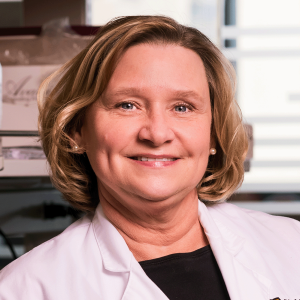Nutrition

Aug. 19, 2025
Veridiana Daley
Daley’s research program focuses on nutrition and metabolism in dairy cattle, with a strong emphasis on nutrient supply and requirements. Her current work investigates the supply and metabolism of individual amino acids and fatty acids in dairy cows aiming to manipulate milk components (fat and protein). She also conducts modeling studies using advanced programming techniques to integrate nutrition, animal health, and stress physiology into a system-level framework. During her doctoral studies, Daley developed a ration formulation software in Brazil (RLM Leite) designed to support precision feeding strategies. She completed her postdoctoral training through the National Animal Nutrition Program at Virginia Tech, where…

July 2, 2024
Jay S. Johnson
Johnson is an Associate Professor of Animal Welfare and Stress Physiology in the Division of Animal Sciences. The overall goal of his research program is to identify production-relevant stressors and evaluate and mitigate their impacts on livestock health, productivity, and welfare. Johnson’s research program uses an integrative physiology approach encompassing aspects of stress physiology, nutritional physiology, and applied ethology to develop and/or improve upon livestock husbandry practices that enhance animal health and welfare while maintaining or increasing economic return for producers. Specific research areas include improving heat stress resilience in swine through genomic selection, improved management, and nutrition to reduce…

June 5, 2023
Amy Petry
Petry is an Assistant Professor in the Division of Animal Science at the University of Missouri, where she leads the MU Monogastric Nutrition Research Lab. Her lab utilizes basic and innovative science to develop, advance, or improve applied nutrition solutions. Her team’s research themes encompass: 1) enhancing fiber utilization and its impact on energy and health benefits in swine diets, 2) exploring the interactions between diet and physiology at a whole-body level, 3) optimizing energy and nutrient supply during homeorhetic states, and 4) developing nutritional biomedical pig models. In 2020, Dr. Petry earned her Ph.D. from Iowa State University. Throughout…

June 30, 2021
Jaapna Dhillon
Educational background Ph.D., Purdue University…

June 30, 2021
Katherene Osei-Boadi Anguah
Educational background Ph.D., Purdue University, 2014 Master of Philosophy in Nutrition, University of Ghana, 2009 B.S., University of Ghana, 2005…

June 30, 2021
Victoria Vieira-Potter
The Vieira-Potter laboratory studies sex differences in adipose tissue metabolism, and how sex hormones (namely, estrogen) and exercise affect fat cell metabolism. This is done via use of a variety of animal models and state-of-the-art molecular tools. Our goal is to determine adipose (i.e., fat) tissue-specific mechanisms by which hormone shifts and obesity affect cardiometabolic disease risk, and to discover novel interventions to mitigate this risk by specifically targeting adipose tissue. Our work has demonstrated that female hormone loss adversely affects adipose tissue both directly, via loss of the protective effects of estrogen receptor signaling, and indirectly, via brain-specific mechanisms…

June 30, 2021
Catherine A. Peterson
Catherine Peterson, R.D.N., Ph.D. is a nutrition scientist and registered dietitian. She is an associate professor in the Department of Nutrition and Exercise Physiology (NEP) at the University of Missouri. Peterson earned her PhD in Nutritional Sciences at the University of Illinois at Urbana-Champaign and was a NIH Post-doctoral trainee in the Department of Nutritional Sciences at the University of Wisconsin-Madison. Peterson has also worked as principal nutrition scientist for a major infant formula company. Her expertise is in the role of micronutrients and other dietary factors in disease prevention. She has published original research on the effects of variable…

June 30, 2021
Elizabeth J. Parks
Elizabeth Parks is a Professor of Medicine in the Department of Nutrition and Exercise Physiology and Department of Medicine, both in the School of Medicine at the University of Missouri. She also serves as Associate Director of the Clinical Translational Science Unit and as an investigator in the university’s NextGen Precision Health Initiative. Her research focuses on understanding how the food we eat is processed in the body to benefit health and how it can also contribute to the progression of diseases such as obesity, pre-diabetes, and diabetes. The major research contributions of the Parks Lab emanate from the development…

June 29, 2021
Pam Bruzina
Educational background Ph.D., University of Wisconsin-Madison…

Sep. 2, 2019
Gary A. Weisman
Nucleotide receptors (P2 receptors) are present in nearly all cells and tissues where they mediate diverse functions including the regulation of platelet aggregation, muscle contraction, neurotransmission, insulin secretion, epithelial ion transport, wound healing and cell growth. We have isolated the first human P2 receptor gene and expressed it in mammalian cell lines that normally lack this receptor. These expression systems have enabled us to identify and purify the P2 receptor protein and current research is directed towards investigating structural features of the receptor that affect its functions. We have cloned or obtained 11 different P2 receptor subtypes belonging to 2…